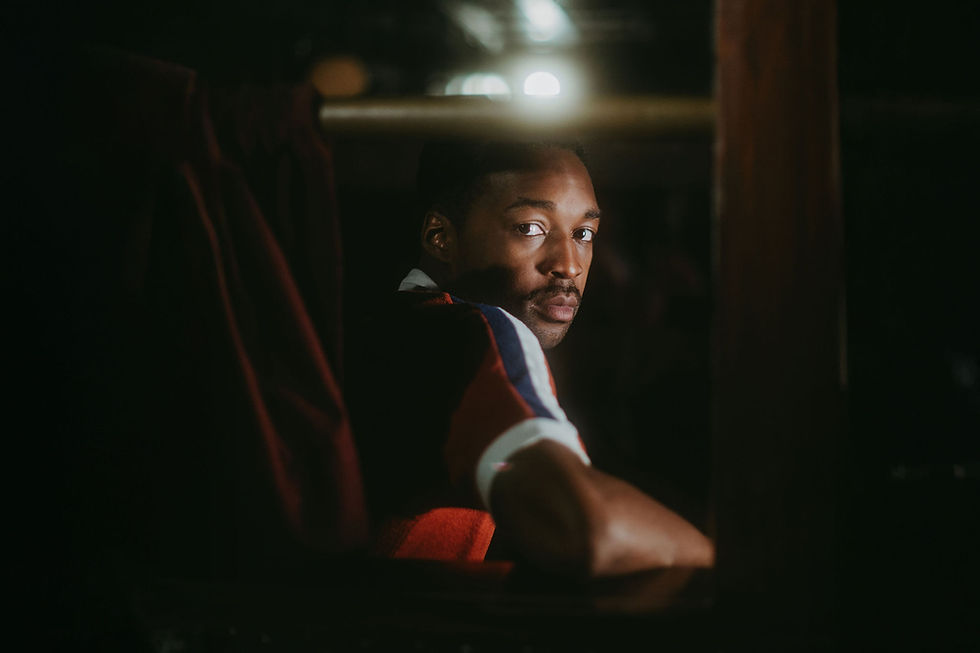DEFENCE AGAINST THE DARK ARTS OF JESCA HOOP
- Apr 8, 2017
- 3 min read

Californian-turned-Mancunian Jesca Hoop calls the microphone "my favourite instrument in the world" and when you hear the way the she can use, even manipulate, that instrument – well beyond softer or louder, closer or further away - it makes perfect sense.
In songs that cross from art rock and indie pop to something nearer one of her early mentors Tom Waits (whose children she looked after for a while) and even the life affirming closeness in the work of friends, supporters and neighbours, Elbow, this is someone who can make a voice do things that shift the way a listener hears.
"Easy now," she says. "[You make it sound like] it's like a dark art. I can't necessarily influence how a person hears me but I can use my intelligence to know that sound, singing or playing an instrument, is about resonance.
"And resonance changes the world around you: the frequencies affect almost everything that it touches. And then resonance is reinforced by our emotional connection."
There's something "metaphysical" happening in that emotional exchange between singer and listener, Hoop believes. Though, as may be even more obvious on her sixth album, Memories Are Now, that soon becomes physical.
"Of course I am trying to reach you on an emotional level but I'm also trying to reach you intellectually and physically as well," she says.
"How I look at a set of songs is I'm trying to reach you on these three levels that you may or may not register until you go home and decide you want to make a baby after the show. If you do, then I've done my job.
"Or make a pie, or a great meal. Just make something."
It's good of her to give us options.
"Yeah, I don't want everybody to go home and make babies. Especially because you can't choose your demographic," Hoop says.
"But if you are all going to go home and make babies I'm going to have a lot more people whose hair will recede in their 40s. Who will be in their 40s. If you know what I mean."
Hmm, not sure that I do, but not sure I want to look too closely. It must be said though that if her fans are all off to make babies post-show it suggests a strong second career surge in 15 or 20 years as those children listen to their parents' music.
"If they reject their parents' music, then I'm screwed," she points out shrewdly.
This talk of seeding future generations does bring to mind a line from Hoop a little while back that she hoped to find herself "being of service to the world".
She may not have meant spurring fecundity but it wasn't a casual reference for someone who grew up immersed in an irregular branch of Christianity.
"That sounds incredibly earnest but I do. I think you get more out of it if your aim is to communicate. I think communication is a service," she says. "It's quite easy to become isolated and there's so many things you can do with music that can be a service to people."
To her that means talking about things that give her a hard time in life "because chances are I'm not alone". Ok, but how does that help us?
"I think so much trouble comes when you take things personally and when you think you are being tested, have fallen out of someone's favour, and that there is nothing in there for you."
It does sound like a philosophy that isn't that far from faith, something that has long mattered in her life, though she had given up being a Mormon by her 20s.
"It is, though it is more of a knowing that if you look at the distance between the largest stars in our universe and us, we just disappear: we are just this tiny organism that works altogether," Hoop says.
"But knowing that we have set this thing up and it seems to be in complete contention with itself all the time due to our failure to cooperate with each other, how do you look at that system, god or government, as an answer?
"What I do know is I have far more questions than I have answers."




Comments